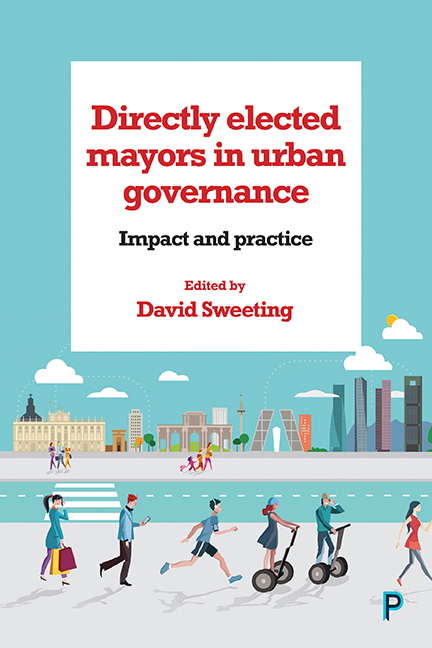eight - Popular leaders or rats in the ranks? Political leadership in Australian cities
Published online by Cambridge University Press: 05 April 2022
Summary
Introduction
In 2000–01 I spent a significant amount of time chairing the Bristol Democracy Commission, a body set up by Bristol City Council to review the political management structures of the council and to make recommendations on which of a number of options pre-determined by central government the council should adopt in the future; we were also charged with reviewing the current state of engagement in local democratic politics in the city and to recommend ways in which this might be improved, enhanced and stimulated, especially at the neighbourhood level.
Just over one year later, we presented our report (Burton, 2001) to the Lord Mayor of Bristol, at that time Councillor Graham Robertson, a longstanding Labour member of the city council and a former leader of the council. While we were not in absolute agreement, there was a high degree of consensus on the Commission that a new approach to political leadership and management within the council was worthy of serious consideration and indeed that there was a strong case for taking a new approach. In particular, we believed there was merit in moving to a new system in which the mayor of the city would no longer be limited to playing a mainly ceremonial role but would have some autonomous executive powers, including the power to form a cabinet of their choosing to help lead the city, and would be directly elected by the electors of Bristol.
Some years later I moved to Australia to join Griffith University and work within the jurisdiction of the City of Gold Coast. As well as being the sixth largest city in Australia, it is the second largest local government authority (by population) in the country, led by a council of 14 divisional councillors and a directly elected mayor, all of whom are expected to work full time in the role and are well paid to do so. Party politics is not a significant feature in the election of councillors and while the political allegiances of councillors and candidates standing in local elections may be known, this does not figure prominently in their campaigning.
- Type
- Chapter
- Information
- Directly Elected Mayors in Urban GovernanceImpact and Practice, pp. 121 - 138Publisher: Bristol University PressPrint publication year: 2017

